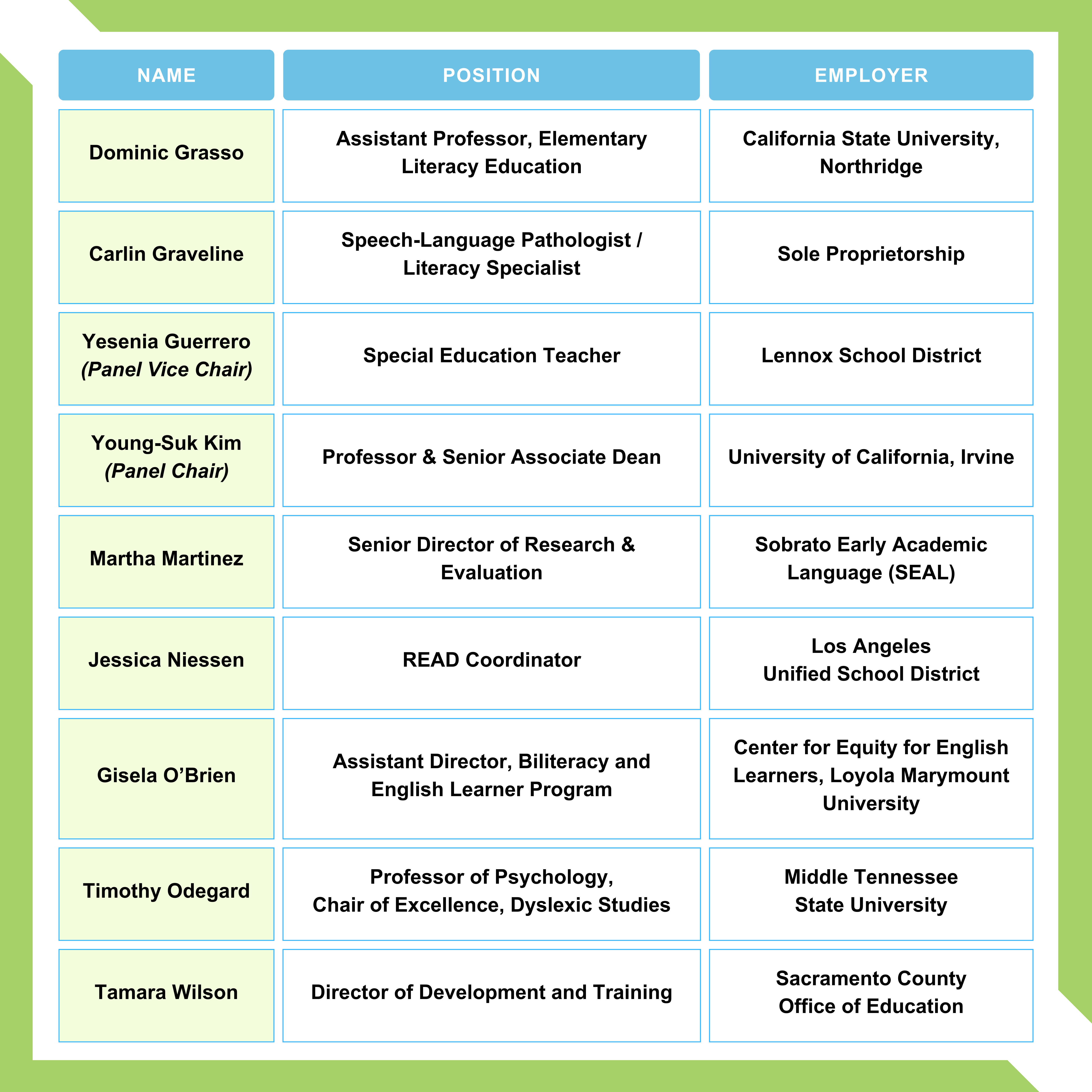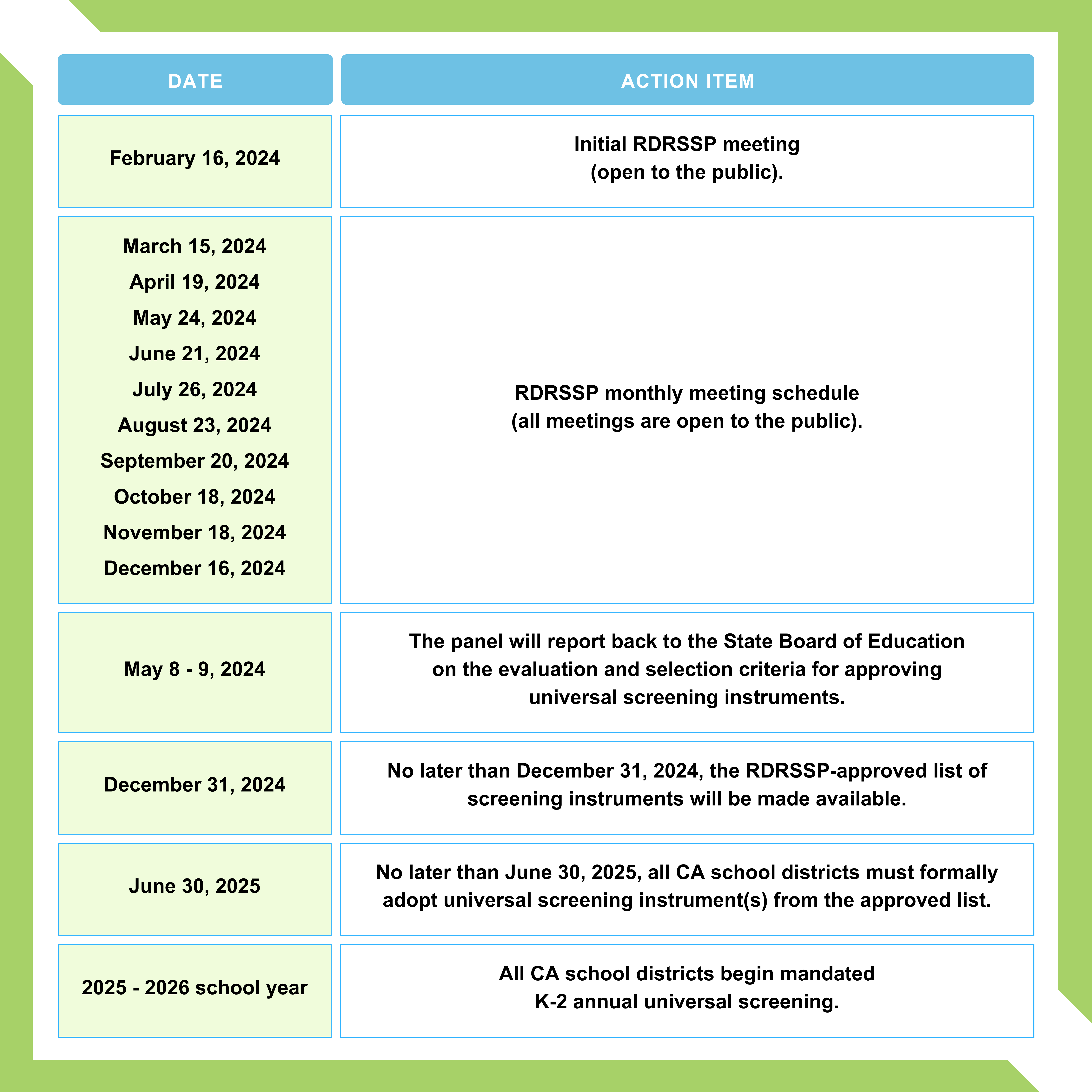
A lot has transpired since our most recent blog was published on September 14, “Columbia Dissolves TCRWP & Lucy Calkins Steps Down.” Several other media sources have published articles, including:
What will the impact be, if any, in California?
Well, that remains to be seen. Even before the latest round of news from Columbia Teachers College, Decoding Dyslexia CA was seeing some movement away from Calkins’ popular curriculum, the Units of Study in Reading, as some districts began aligning with the Science of Reading amid a statewide literacy crisis that has California lagging the nation in fourth-grade reading proficiency.
Units of Study in Reading refers to the wildly popular instructional materials authored by Lucy Calkins and Teachers College Reading Writing Project (TCRWP). For decades Lucy Calkins and TCRWP hosted professional development on the Ivy League campus of Columbia Teachers College that aligned with the commercial curriculum products. While the affiliation between TCRWP and the university is ending, the Units of Study curriculum will continue to be published by Heinemann. This blog focuses on districts’ movement away from using the Heinemann-published Units of Study in Reading curriculum.
Palo Alto Unified School District
One example is the Palo Alto Unified School District. PAUSD has undertaken several district changes as part of its Every Students Reads Initiative. One of these was to abandon Calkins’ Units of Study in Reading and adopt a new core ELA/ELD curriculum in addition to implementing universal screening, teacher training, and coaching, among other things.
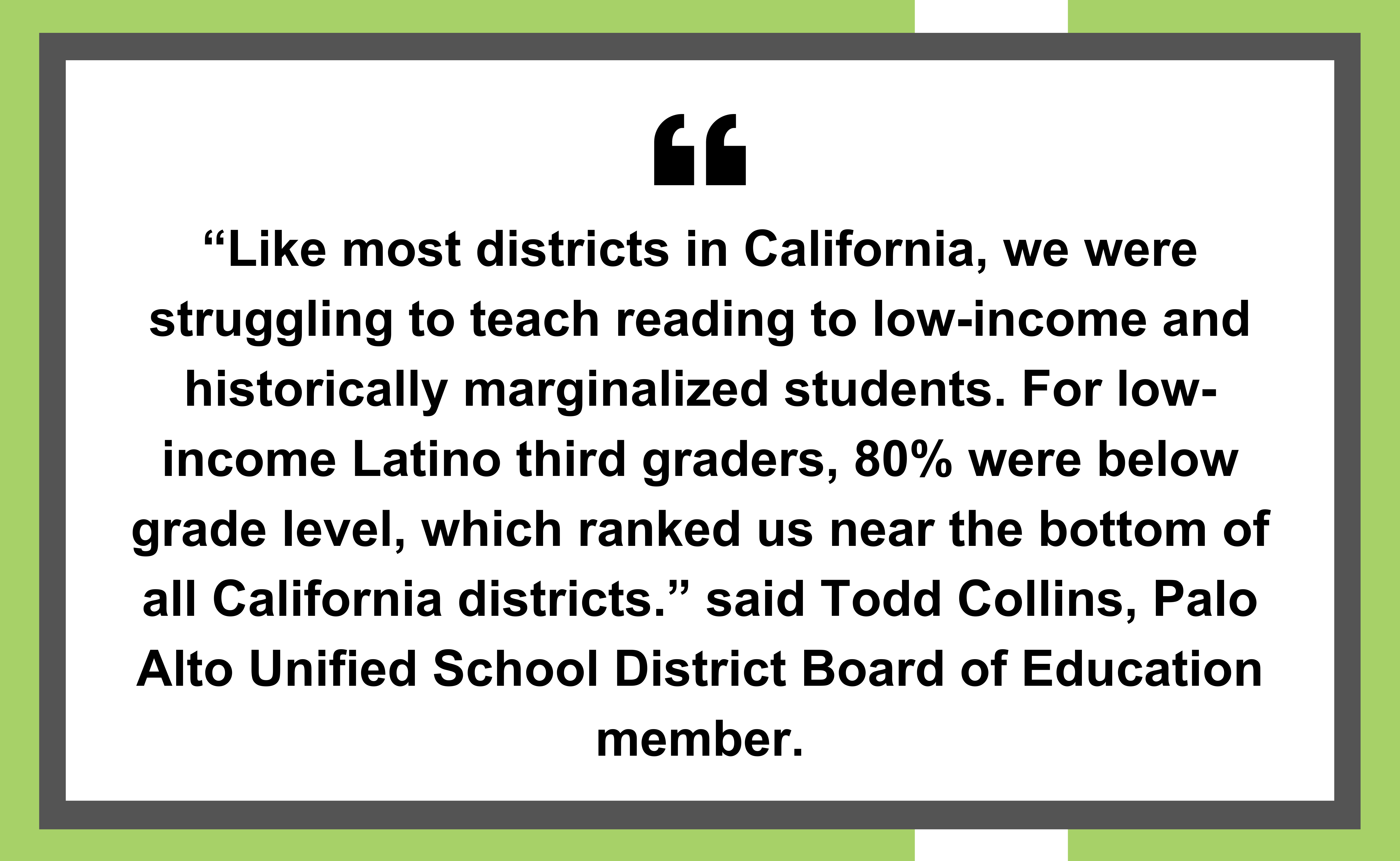 Source: EdSource “How our district moved the needle on early literacy (and you can too)”
Source: EdSource “How our district moved the needle on early literacy (and you can too)”
You can learn more about Palo Alto Unified School District’s initiative here:
Palo Alto’s investment in structured literacy is showing results with significant gains in the CAASPP results for their Low-income Latino 3rd Graders, as shown below.
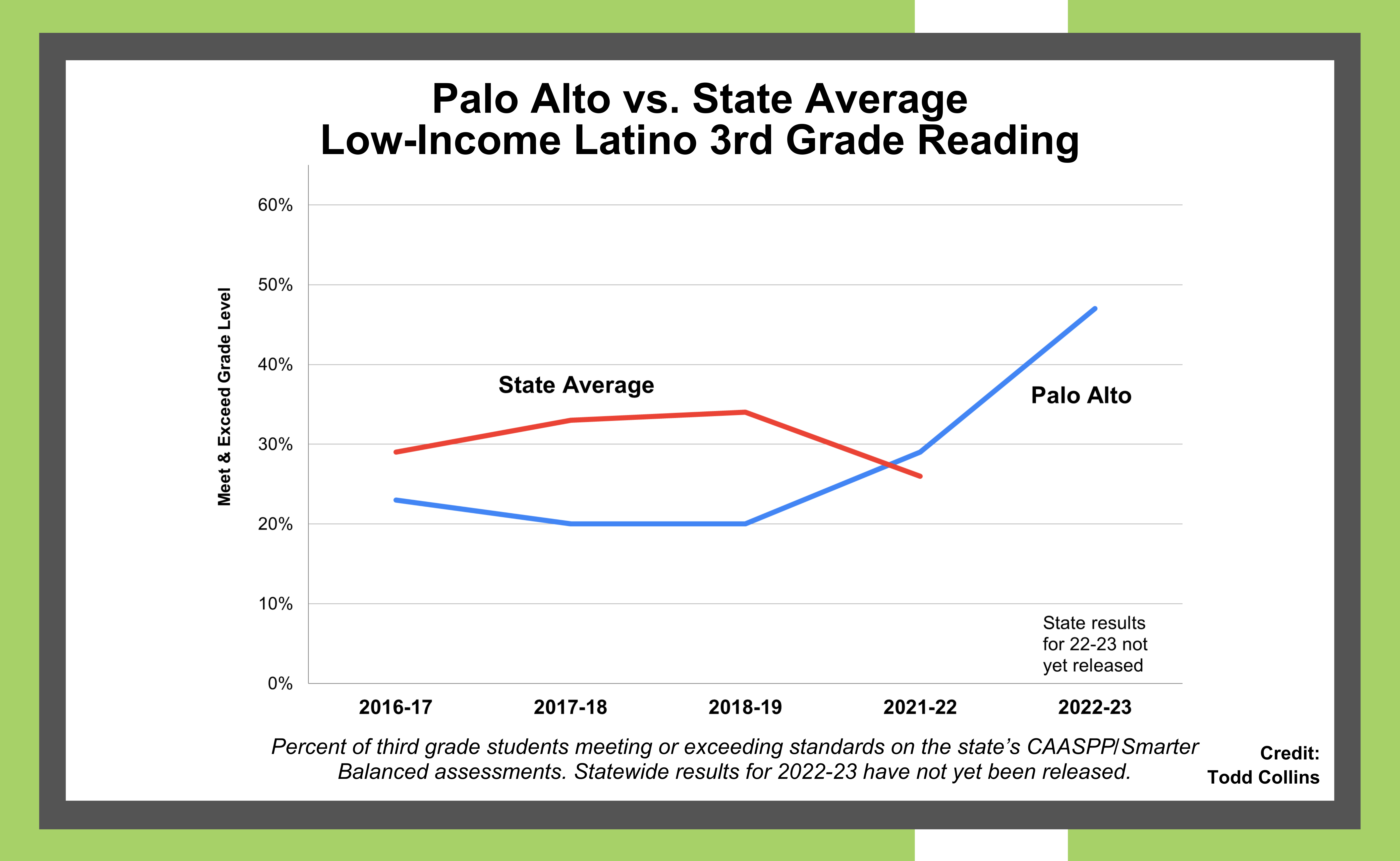 Source: EdSource “How our district moved the needle on early literacy (and you can too)”
Source: EdSource “How our district moved the needle on early literacy (and you can too)”
Berkeley Unified School District
Berkeley Unified School District (BUSD), another Lucy Calkins’ Units of Study district, has had to implement a districtwide literacy improvement plan that includes screening all K-5 students for reading difficulties and implementing evidence-based literacy interventions as the result of a federal class action lawsuit settlement in 2021.
The district must also evaluate the effectiveness of its Tier 1 curriculum. In March of 2023, BUSD began its own curriculum audit. According to the Berkeley Unified School District Literacy Action Plan 2022-2023 – Fourth Quarter Report (dated August 23, 2023), the “results of the review indicate gaps in key areas of literacy instruction in the TCRWP – Units of Study curriculum.” The details of the BUSD review can be found in Appendix B, pages 20-22, and the deficiencies are wide-ranging. What remains to be seen is if BUSD will abandon Units of Study instead of continuing to try and prop it up with “band-aid phonics patches”…but more about that later.
San Francisco Unified School District
San Francisco Unified is not as far along but has already made significant commitments to changing its reading instruction. Based on findings of an external curriculum and instruction audit, the district will replace Lucy Calkins’ curriculum. The audit of SFUSD’s literacy program found that over 90% of observed instruction in SFUSD classrooms did not incorporate sufficient opportunities for students to practice foundational reading skills. This comes as no surprise as the consensus from reviews and ratings is clear: Units of Study in Reading fails to provide the systematic and explicit instruction in foundational skills necessary for the majority of children to learn to read. Reviewers have also noted weaknesses in areas of vocabulary and knowledge building and other things, but poor guidance on foundational skills is the most glaring.
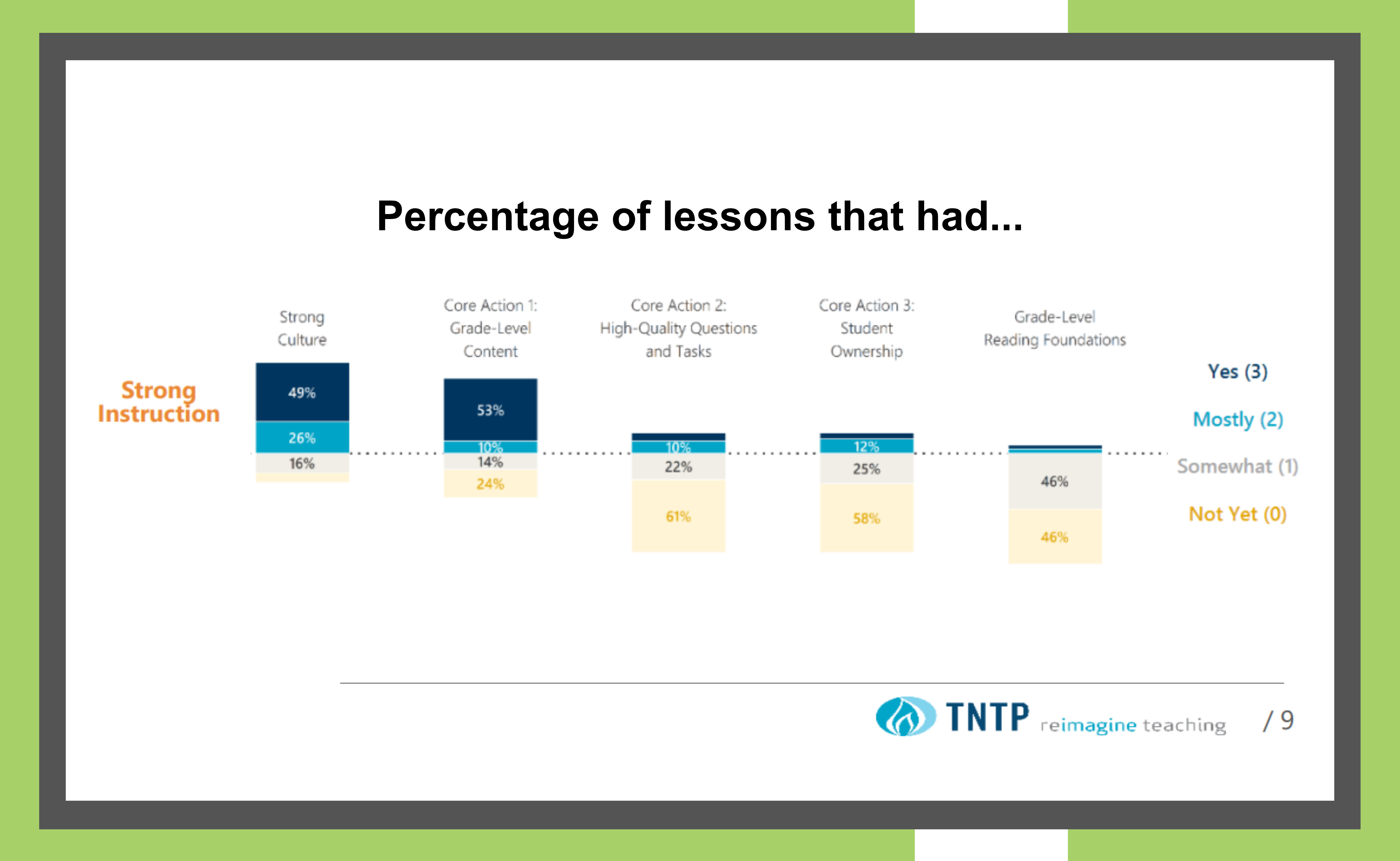 Source: K-5 Literacy Program Review: San Francisco Unified School District
Source: K-5 Literacy Program Review: San Francisco Unified School District
West Contra Costa Unified School District
In West Contra Costa Unified School District (WCCUSD), despite reading scores being “stagnant for over a decade” and a less-than-ambitious district reading goal to “improve by 5% each year,” WCCUSD will shockingly stick with Calkins’ Units of Study in Reading according to EdSource article “West Contra Costa superintendent seeks to raise reading scores.”
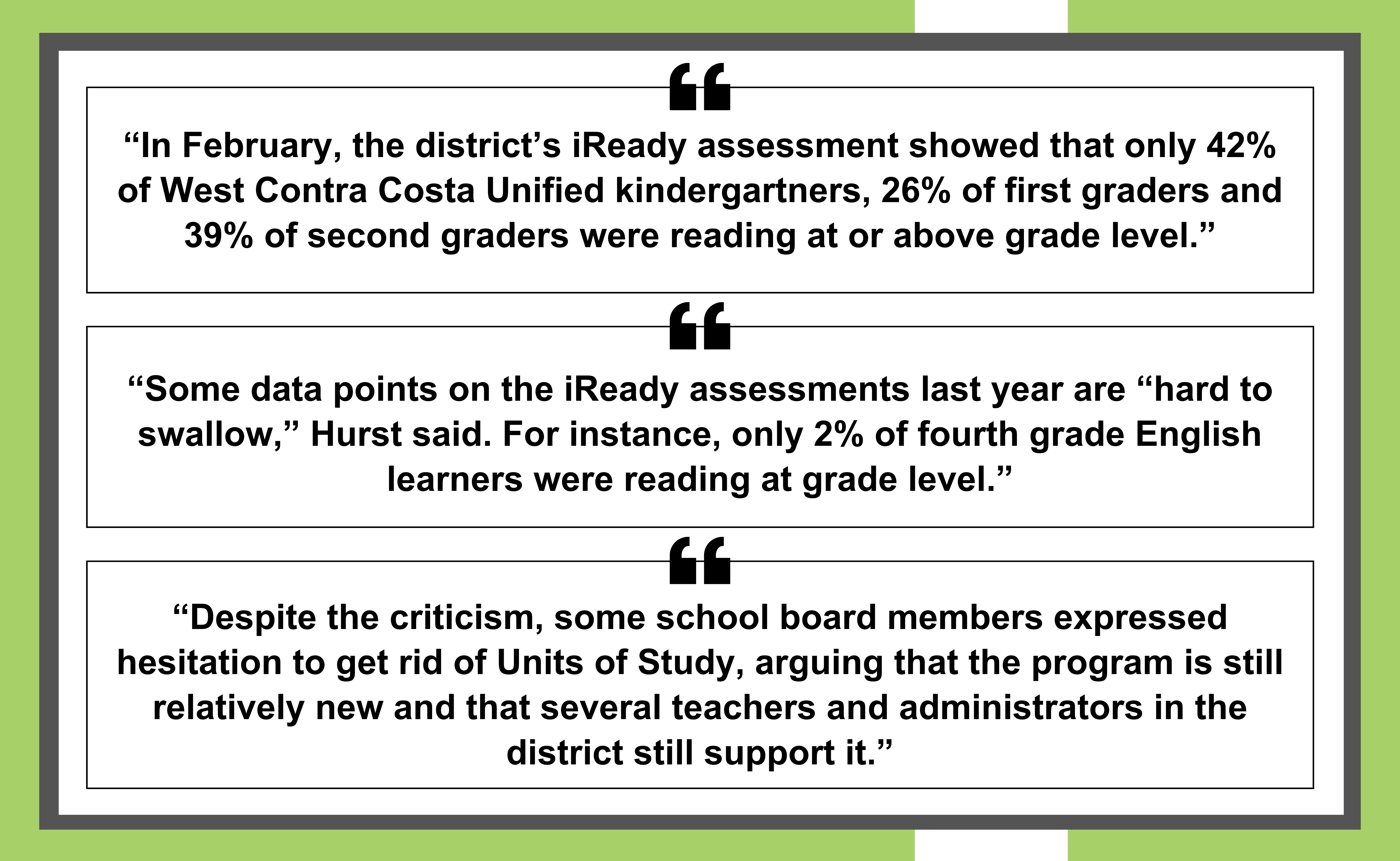 Source: EdSource “How our district moved the needle on early literacy (and you can too)”
Source: EdSource “How our district moved the needle on early literacy (and you can too)”
In our last blog, DDCA referenced a 2020 report done by nationally-renowned experts entitled “Comparing Reading Research to Program Design: An Examination of Teachers College Units of Study” which found, in addition to overall flaws in Calkins program, specifically noted that English Learners “will not have access to best practices in literacy instruction, particularly in the beginning and early stages of literacy development. Claims made in the Units about practices that are “especially powerful” or “incredibly supportive” for English language learners are not consistent with existing research.”
According to the EdSource article, WCCUSD is planning on adding a “band-aid” patch to shore up its failing Units of Study curricula.
How Widespread is the Calkins TCRWP curriculum?
It is very difficult to find out how pervasive the use of Calkins’ curriculum is in our California school districts. Are Calkins’ Units of Study on the state-adopted list of approved English Language Arts curriculum? No. Are school districts able to adopt curricula not on the state-adopted list? Yes.
Two interesting reports were issued by the California Reading Coalition. One (the California Reading Report Card 2022 ranked districts by the percent of economically disadvantaged Hispanic/Latino (Latino) students who “meet or exceed” grade level for the CAASPP 3rd grade ELA test in 2022. In California, economically disadvantaged Latino students make up 43% of California K-12 enrollment. The other report, the California Reading Curriculum Report, found that districts using Units of Study were disproportionately among the lowest-performing in the state overall.
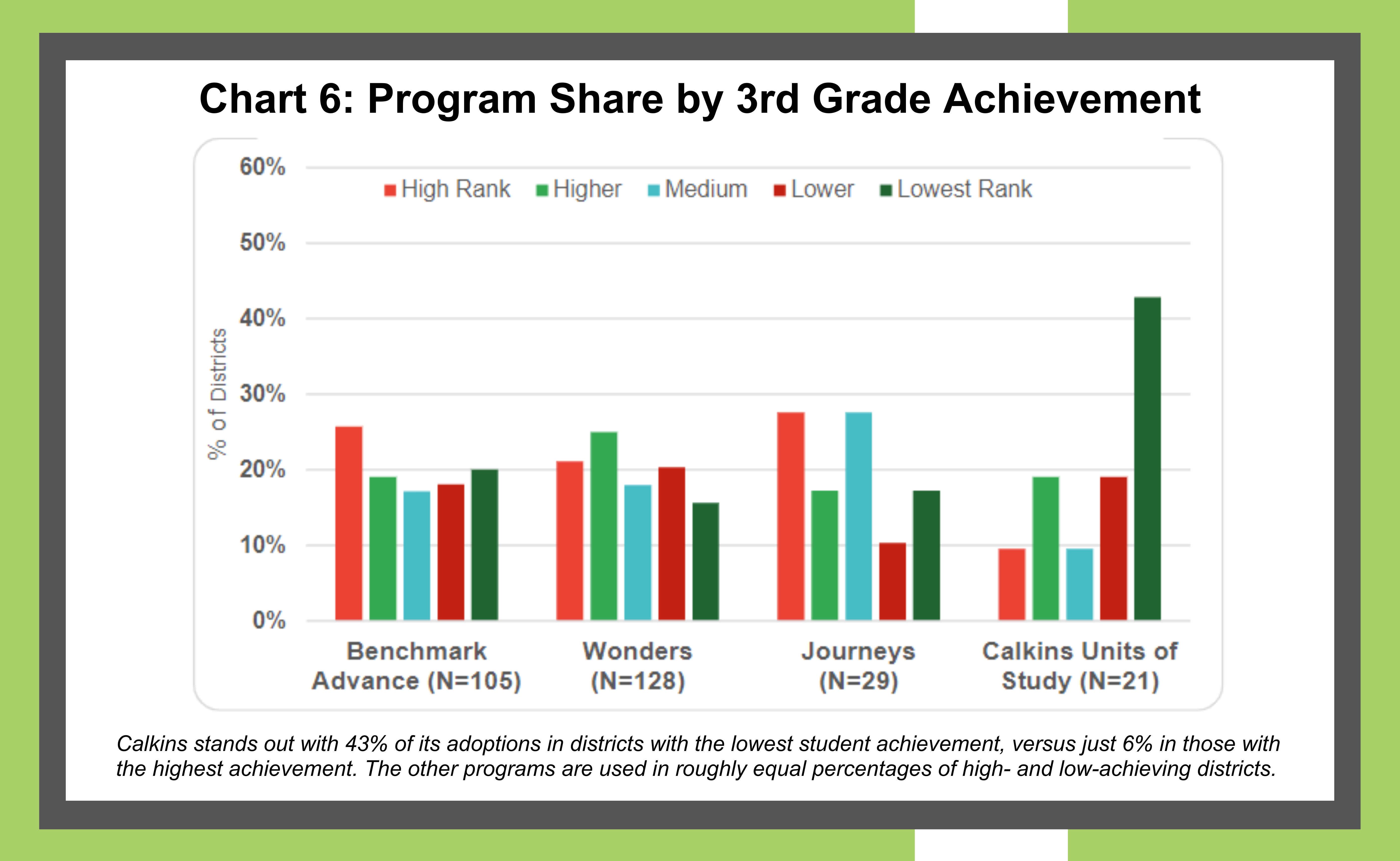 Source: CA Reading Coalition’s Curriculum Report
Source: CA Reading Coalition’s Curriculum Report
Despite the fact that Calkins’ Units of Study are not on the state-adopted curriculum list, the CA State Board of Education (SBE) held out this curriculum as an exemplary program in a federal literacy grant application. In an EdWeek article entitled “Advocates for Science-Based Reading Instruction Worry California Plan Sends the Wrong Message,” advocates, including Decoding Dyslexia CA, called out SBE for naming Calkins’ curriculum as an exemplary program “proven to improve student outcomes,” when in fact there is minimal evidence of its effectiveness. SBE also added a footnote with a website link to the commercial Units of Study program in its federal grant application.
Interested in Learning More?
If you are interested in learning more about California’s long history of failed whole language and “balanced literacy” programs, such as Calkins’ Units of Study in Reading, take the time to listen to or read:
Stay tuned for our next blog on why adding “band-aid phonics patches” to Calkins’ Units of Study does more harm than good.
And as always, please encourage family, friends, and colleagues to sign up for DDCA emails to stay informed on dyslexia-related efforts in California.


